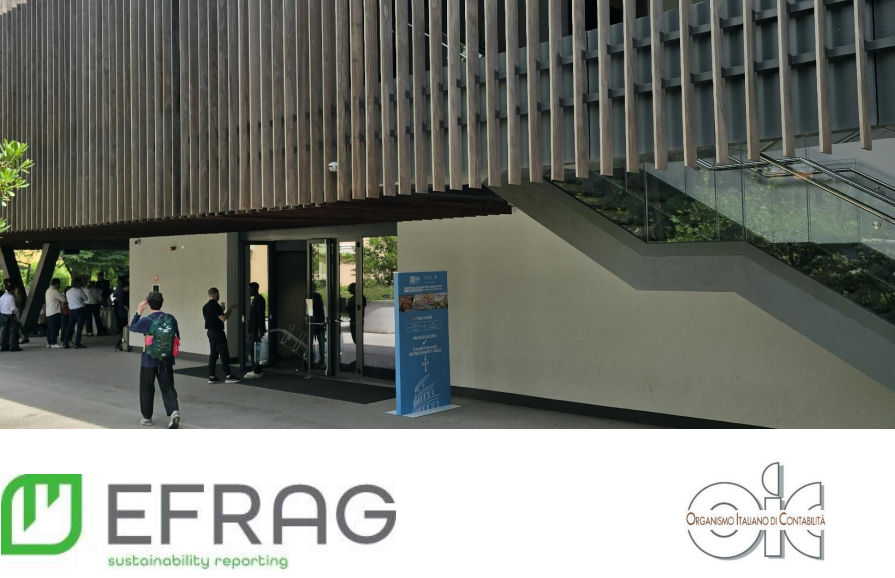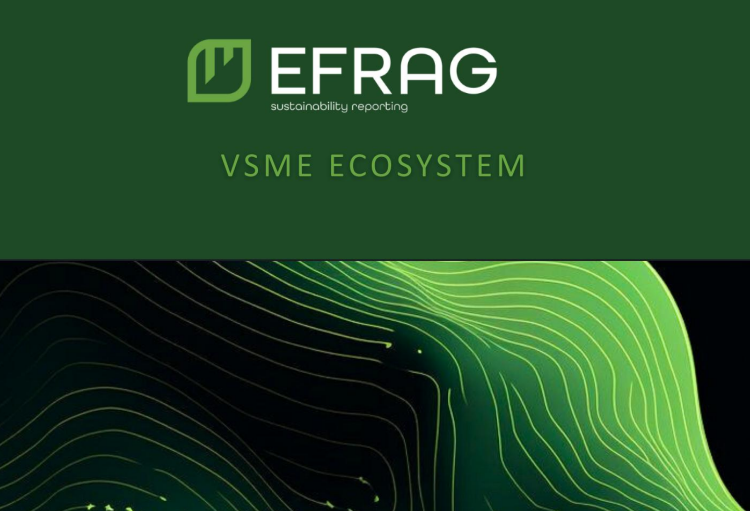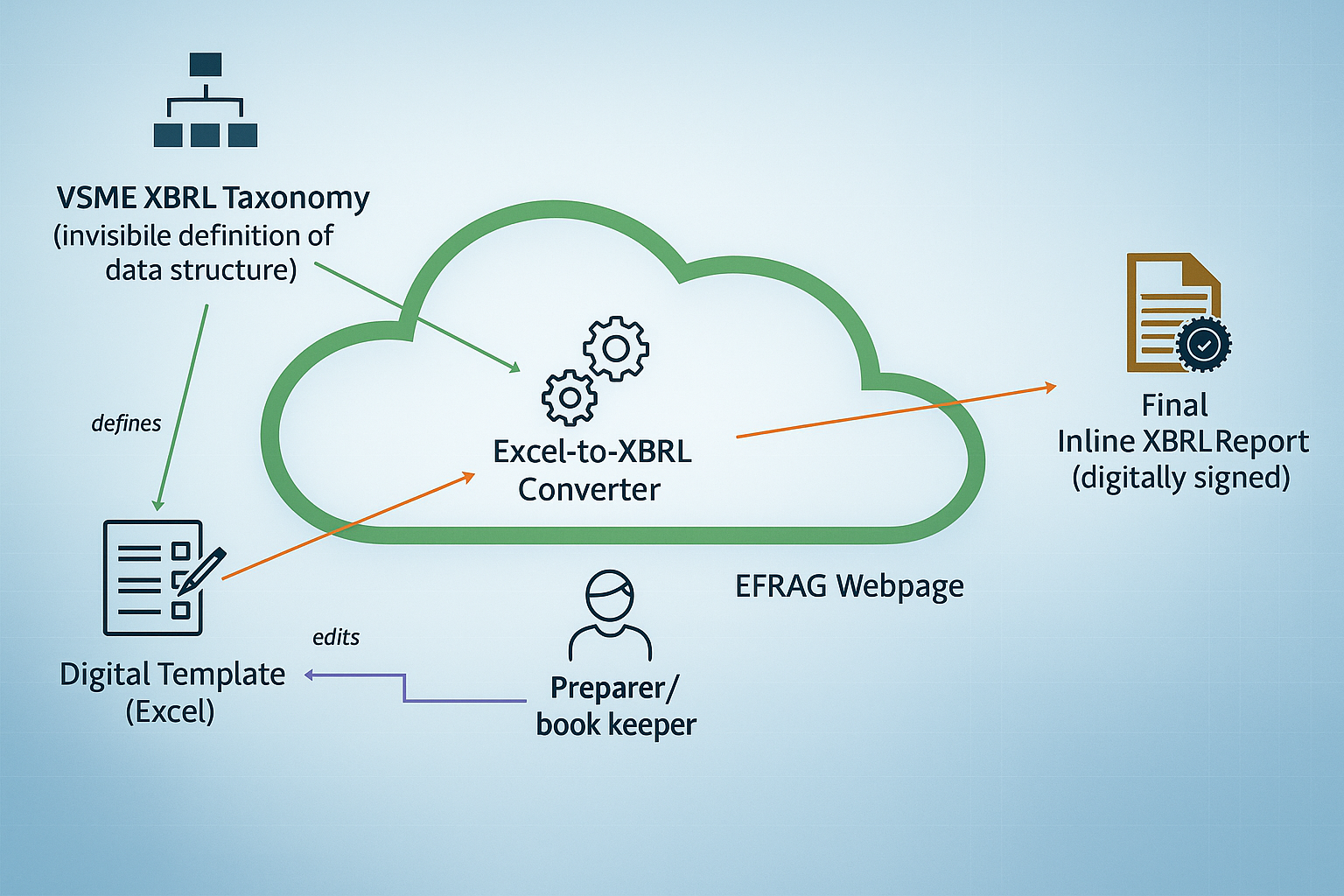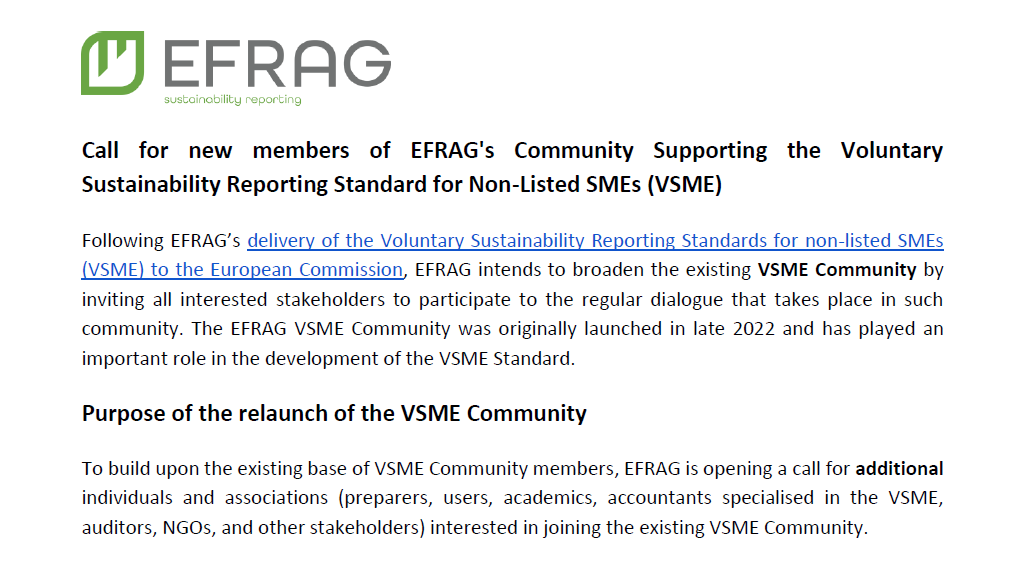Sustainability Reporting for SMEs: Reflections from the EFRAG–OIC Symposium at the EAA Congress 2025
EFRAG and OIC organised a symposium during the 2025 EAA Congress to discuss sustainability reporting for small and medium-sized enterprises. The focus was on the Voluntary Sustainability Reporting Standard for SMEs and its potential role in improving the accessibility and consistency of ESG disclosures.

At the 47th Annual Congress of the European Accounting Association in Rome, EFRAG and Organismo Italiano di Contabilità (OIC) hosted a symposium on sustainability reporting for small and medium-sized enterprises. The event centred on the Voluntary Sustainability Reporting Standard for non-listed SMEs, referred to as the VSME Standard, developed by EFRAG to respond to growing business-to-business information demands. While not falling under the Corporate Sustainability Reporting Directive, the VSME Standard aims to streamline ESG disclosures for entities with fewer than 250 employees and improve communication with financial and commercial stakeholders.
Objectives and Structure of the VSME Standard
The VSME Standard, as introduced by EFRAG Sustainability Reporting TEG Chair Chiara Del Prete, was developed in response to market demand rather than regulatory mandates. It supports SMEs in addressing increasing business-to-business sustainability information requests by offering a simplified and standardised template. The Standard consists of two modules. The Basic Module, designed for micro-enterprises, includes binary disclosures on key environmental, social, and governance topics without requiring narratives. The Comprehensive Module extends the framework with more descriptive elements tailored to small and medium-sized entities. The absence of a materiality assessment reflects a deliberate design choice to ease application and focus on standardised disclosures relevant to business partners.
From Compliance to Strategic Value
The symposium participants raised concerns that sustainability reporting should not be limited to compliance. Moderator Araceli Mora (University of Valencia) opened the discussion by questioning how reporting could become a strategic tool. Katharina Bryan (Amazon) underlined the importance of practical and interoperable approaches and suggested that voluntary reporting could help SMEs prepare for future regulatory requirements. Alexander Stevens (Greenomy) noted that ESG reporting may reduce financing costs, optimise operations, and streamline procurement. He also stressed the importance of tools that facilitate reporting implementation. Voluntary adoption of the VSME Standard was viewed as both preparation and a means to embed sustainability in strategy.
Readiness and Capacity Challenges
Despite this potential, many SMEs remain unprepared for structured sustainability reporting. Elbano de Nuccio (Consiglio Nazionale dei Dottori Commercialisti e degli Esperti Contabili) observed that ESG behaviour among SMEs is often informal and internally focused. He emphasised the need for support from the accounting profession. Sophia Zakari (SMEunited) added that most European micro-enterprises are unfamiliar with reporting requirements and lack internal capacity. She stressed that even accountants require training before they can assist SMEs. Both speakers pointed to the disconnect between sustainability practices and formal disclosures, as well as the unsustainable reliance on external consultants.
Impact and Constraints of the VSME Standard
Speakers at the symposium agreed that the VSME Standard could help reduce reporting fatigue by offering a unified ESG format. However, SMEs are still subject to additional information requests from banks and business partners that may not align with the Standard. Unless these stakeholders accept the VSME framework, simplification may be limited. Participants highlighted the need for regulatory endorsement and harmonisation to reduce duplication. While the VSME Digital Template and related tools were seen as practical, the importance of localisation and integration with national systems was also emphasised.
Support from Financial and Corporate Stakeholders
Panellists noted that banks and large companies strongly influence ESG reporting expectations for SMEs. Aligning their information requests with the VSME Standard could ease the administrative burden. Examples cited included sector-specific guidance and shared platforms such as Amazon’s Sustainability Exchange. Participants also emphasised that standard setters must ensure frameworks are accessible and proportionate to SME capacities.
Looking Ahead: The Path to Broader Adoption
The symposium highlighted that broader uptake of the VSME Standard will depend on several factors. Awareness and training are essential to build internal capabilities. Digital tools can facilitate data integration. A European database could support benchmarking and improve usability of ESG data. Despite interest, widespread adoption will require regulatory endorsement and acceptance from financial institutions and supply chain partners. Without clear agreement on what constitutes sufficient ESG disclosure, SMEs may continue to face fragmented expectations.
Conclusion: Simplicity, Proportionality and Relevance
The VSME Standard is a step forward in addressing the ESG reporting needs of SMEs. Its effectiveness will depend on how well it balances simplification with usability. Participants stressed that standardisation, rather than reduction in substance, should drive simplification. Ensuring disclosures remain proportionate and relevant will be key to serving both preparers and users. As SME sustainability reporting evolves, alignment between policy, technical frameworks and market practice will be essential to minimise fragmentation and realise the value of ESG transparency.



